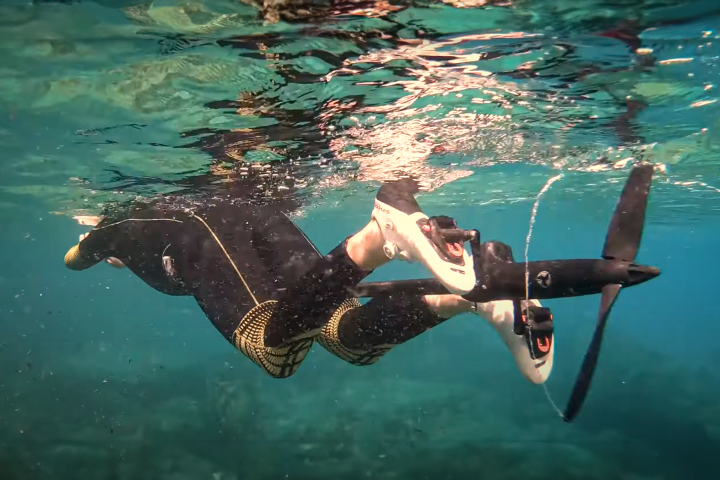A short-range radar wearable being developed by the VTT Technical Research Center of Finland could soon be guiding the visually impaired through their outdoor activities. VTT's Guidesense is a chest-worn monitor that alerts the wearer of potential obstacles through vibrations and voice feedback.
Guidesense works through short-range millimeter wave sensing, a type of "miniature radar" array that can be incorporated in everything from self-driving vehicles to smart, intrusion-detecting buildings.
In this application, it's worn in a manner similar to a heart rate monitor. According to VTT, it detects most obstacles surrounding the user, with the exception of particularly small objects like thin branches and bushes.
It's not the first wearable meant to assist the blind – everything from wrist-mounted sonar devices to "SpiderSense" perception suits have been floated as potential tech aids for the visually impaired. However, the Guidesense has a few potential advantages over other offerings.

For one, the device can be worn in a low-profile way.
"[Guidesense] functions based on radio waves, so that the signal passes through normal clothing," says VTT Senior Scientist Tero Kiuru. "This means that it can be worn discreetly under a coat, for example." That also means it's compatible with other common aids, such as using a cane, dog, or reflective vest.
While the radar technology does not work indoors, it is reliable through most environmental conditions. According to the company, Guidesense's short-range radar is not subject to interference from environmental problems like fog, rain, smoke or darkness.
Lastly, the device is currently still in the testing and development stages, but preliminary results have been quite positive. In a clinical test approved by Finland's National Supervisory Authority of Welfare and Health, 92 percent of the 25 visually impaired test subjects reported that the Guidesense device helped them to perceive their surroundings. Only 32 percent said they would immediately start using the device in its current form, but according to VTT, this is largely due to insufficient feedback mechanisms, and further development will address these shortcomings.
Source: VTT





